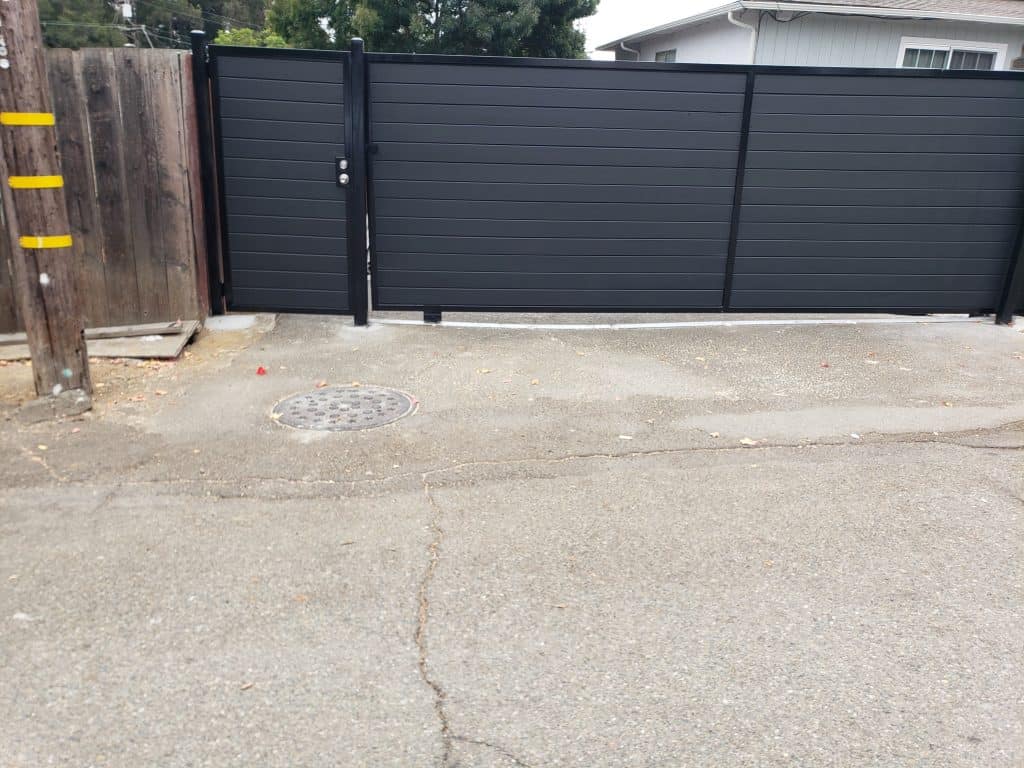[ad_1]
Electric gate openers are becoming more and more popular as we seek an automated way to keep our homes and businesses secure. They provide security with the ability to control the gate remotely, but with the many options out there, it can be overwhelming when deciding which type to choose. One of the most important decisions is choosing between AC and DC electric gate openers. In this article, we will highlight the differences between the two, their pros and cons, and frequently asked questions to help you make a more informed decision.
AC Electric Gate Openers
AC electric gate openers are powered by electricity from the electrical grid, which is considered a high voltage. They require a constant and reliable supply of electricity to operate. AC openers use a motor with a belt drive that generates the force needed to open and close the gate.
Pros:
1. High performance: AC openers are known for their powerful mechanics, and they are ideal for large, heavy-duty gates.
2. Reliable power source: Since they are powered through an electrical outlet, you do not have to worry about the battery life or charging them to keep them working.
3. Long-lasting: AC gate openers are known to have a longer lifespan than DC openers because they have fewer moving parts and require less maintenance.
Cons:
1. Higher installation cost: AC openers require professional installation which can be more expensive than installing a DC opener, especially if additional electrical wiring is needed.
2. Not ideal for remote locations: Since they require an electrical outlet, they are not a good option for remote locations, and if there is a power outage, the gate opener will not work.
3. Higher energy consumption: Because they run off the electricity grid, AC gate openers can consume more energy, which can lead to higher electric bills.
DC Electric Gate Openers
DC electric gate openers are powered by low voltage electricity from batteries, typically 12V or 24V. DC openers use an electromechanical system with a gear-driven motor to open and close the gate. This motor generates less power compared to AC motors, but they can still handle moderate loads.
Pros:
1. Lower installation cost: Since they do not require any additional wiring or professional installation, electric gate installation costs considerably less.
2. Backup battery: DC openers have the added advantage of having a backup battery, which enables the gate to work even during power outages.
3. Energy-efficient: DC openers consume less energy than AC openers, which means they are energy efficient, saving you money on your electric bill.
Cons:
1. Lower performance: Unfortunately, DC openers cannot handle heavy loads, and they are not ideal for large, heavy-duty gates. In this case, AC openers are the better option.
2. Less Durable: Compared to AC openers, DC openers have a shorter lifespan and may require more maintenance.
3. Limited range: DC openers may have a limited range when it comes to remote operation.
FAQs
Q: How do I choose the right electric gate opener?
A: Selecting the right electric gate opener depends on many factors, such as your gate’s size and weight, location, power source, and budget. Determine your needs and factor in what type of gate opener would work best.
Q: How long do electric gate openers last?
A: The lifespan of an electric gate opener depends on many factors, such as usage, maintenance, and type of opener. On average, gate openers can last between 5-10 years.
Q: Can electric gate openers be installed in remote locations?
A: If you decide to go with an AC electric gate opener, this is impossible since they require a power source. DC openers can be installed in remote areas if they have access to solar panels or a generator.
Q: Can electric gate openers be used for all gate types?
A: Not all electric openers are suitable for every gate type. Heavy-duty gates are better handled by AC openers, while moderate loads are more appropriate for DC openers.
Q: How much does it cost to install an electric gate opener?
A: The price of installing an electric gate opener varies depending on the type and size of your gate, the location, the type of opener, and the service provider. AC openers may have higher installation costs than DC openers since an electrician is required to install.
Conclusion
Choosing between AC and DC electric gate openers depends on your individual needs and preferences. If you need maximum power for large, heavy-duty gates, then AC gate openers are the better option. DC gate openers are generally more affordable, energy-efficient, and an excellent choice for smaller gates. When choosing your electric gate opener, consider your location, power availability, and your budget to determine what will work for you.
[ad_2]


